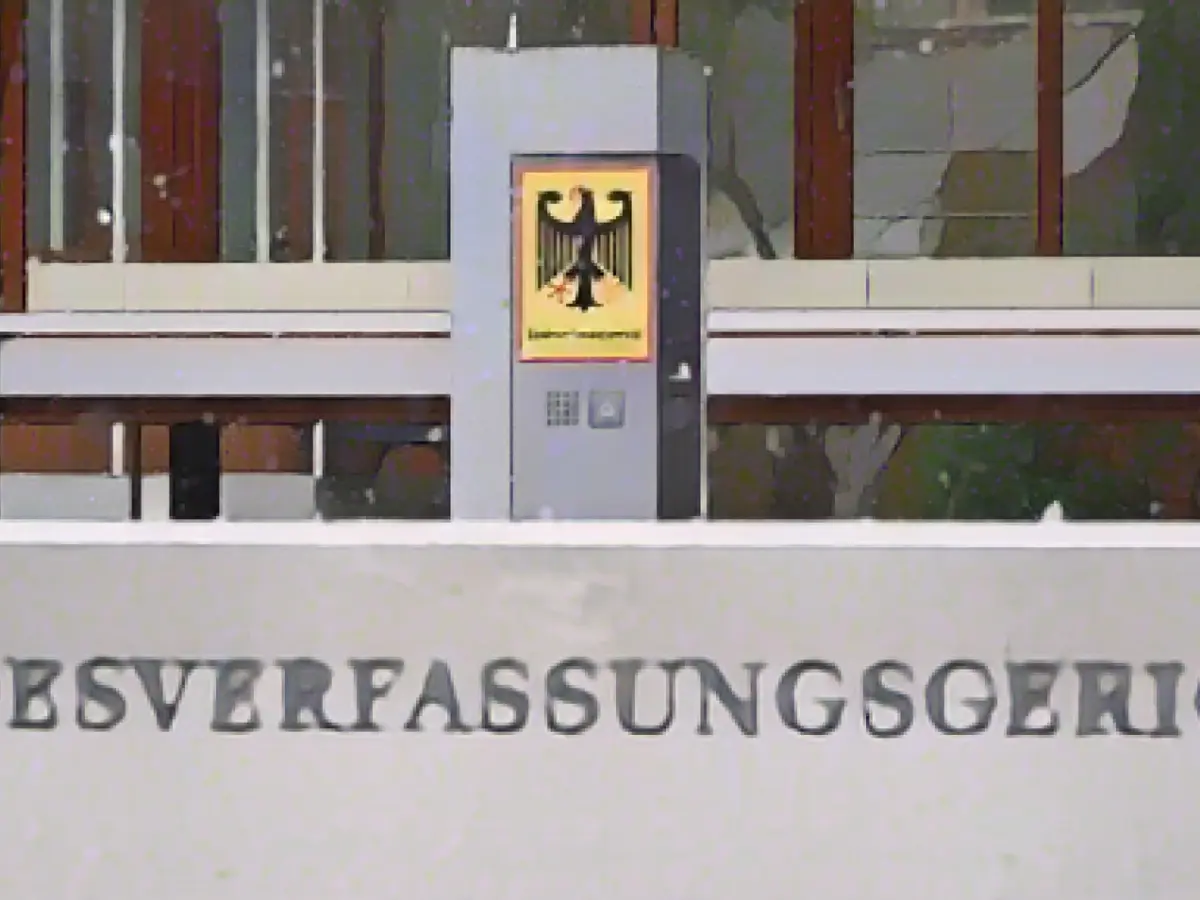Justice - What is allowed in the fight against terrorism? Constitutional Court examines
In cooperation with the police, the Federal Criminal Police Office (BKA) has far-reaching powers in the fight against terrorism. The Federal Constitutional Court must now clarify the extent to which these powers may violate the fundamental rights of innocent citizens.
The issues on the agenda for the hearing in Karlsruhe include data collection and processing and, not least, the BKA's deletion practices. It is also about the secret surveillance of a suspect's contacts. A ruling is not expected for several months. (Ref. 1 BvR 1160/19)
Plaintiff: Door and gate open for data collection
The Gesellschaft für Freiheitsrechte (GFF), a non-profit association, has lodged a constitutional complaint against the BKA Act, which was amended in 2017. It believes that the possibilities granted to investigating authorities go too far. People who merely had contact with a suspicious person could become the target of surveillance measures. "This also affects two of the complainants in the constitutional complaint, who are in contact with suspects through their professional activities as lawyers."
The GFF also complains that sensitive personal data could be extensively stored on the basis of vague indications or mere suspicions and used without any further factual or temporal limits. "As a result, comprehensive personality profiles of people who have never been guilty of anything can be created and stored permanently," the statement reads.
The plaintiffs demand specific constitutional standards for the collection and storage of data by the BKA. In this respect, the constitutional complaint breaks new ground. The complaint is also directed against the planned consolidation of police databases. "On the one hand, we hope that the court's decision will result in more detailed provisions on these requirements, but above all that they will be defined more narrowly - and that no more people will end up in the databases for a long time who have not given sufficient cause for this," explained Bijan Moini from the GGF.
Senate has previously objected to parts of the law
This is not the first time that Germany's highest court has dealt with the issue. In 2016, it imposed new limits on the security authorities in the fight against terrorism and declared some of the BKA's extensive powers to combat terrorism to be unconstitutional. The First Senate found "disproportionate interference in a number of individual provisions". (Ref. 1 BvR 966/09, 1 BvR 1140/09)
In order to prevent terrorist attacks, the BKA has been allowed to bug homes and spy on them with cameras since 2009. The state is also allowed to use Trojans, i.e. specially developed software that skims data from a suspect's computer hard drive. According to the ruling at the time, all of this is compatible with fundamental rights in principle. It recognizes the importance of the fight against terrorism for democracy and fundamental rights.
However, the court judged the specific design of the powers by the legislator to be inadequate in various respects. In particular, the core area of private life was not sufficiently protected in some cases. The ruling formulates particularly high requirements for the surveillance of homes and online searches. The Senate also specified clear conditions for the exchange of data with other authorities in Germany and abroad.
The BKA Act therefore had to be amended. The new version has been in force since May 2018. The GFF is concerned with a "gap in constitutional law that has not yet been clarified", as it explained when presenting the constitutional complaint. According to the information provided, in addition to the two criminal defense lawyers, the plaintiffs are two soccer fans who ended up in police databases and a communication scientist and activist.
Read also:
- Year of climate records: extreme is the new normal
- Precautionary arrests show Islamist terror threat
- UN vote urges Israel to ceasefire
- SPD rules out budget resolution before the end of the year
- The Constitutional Court in Karlsruhe is currently examining the extent to which the BKA's powers in the fight against terrorism may infringe upon the fundamental rights of innocent citizens.
- The Federal Criminal Police Office (BKA) cooperates with the Police in Germany to combat terrorism, but their data collection and processing practices are under scrutiny.
- The Gesellschaft für Freiheitsrechte (GFF) has lodged a constitutional complaint against the BKA Act, alleging that it grants investigating authorities too much power and leads to the creation of extensive personality profiles of innocent individuals.
- In 2016, the Federal Constitutional Court in Germany imposed new limits on security authorities' powers in the fight against terrorism, declaring some of the BKA's extensive powers against terrorism to be unconstitutional.
- The constitutional complaint filed by the GFF aims to establish specific constitutional standards for the collection and storage of data by the BKA, hoping to prevent more individuals from being unnecessarily included in databases.
- The BKA has been allowed to use measures such as bugging homes and using Trojans to collect data since 2009, with the German court recognizing their necessity for the fight against terrorism but expressing concerns about adequate protection of private life and clear data exchange conditions.
Source: www.stern.de








